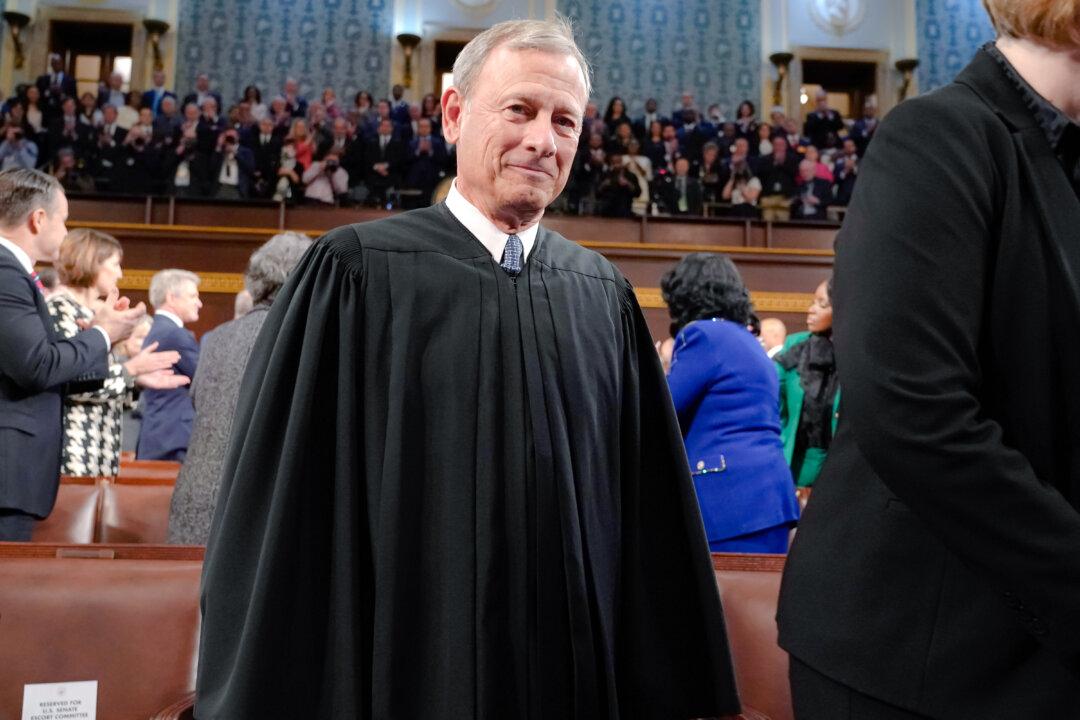As the U.S. Supreme Court on Thursday heard two hours of arguments in a Colorado case to remove former President Donald Trump from the ballot, Chief Justice John Roberts suggested that if he’s pulled, other states would eventually do the same to other candidates.
“It’ll come down to just a handful of states that are going to decide the presidential election,” Justice Roberts said. “That’s a pretty daunting consequence.”





